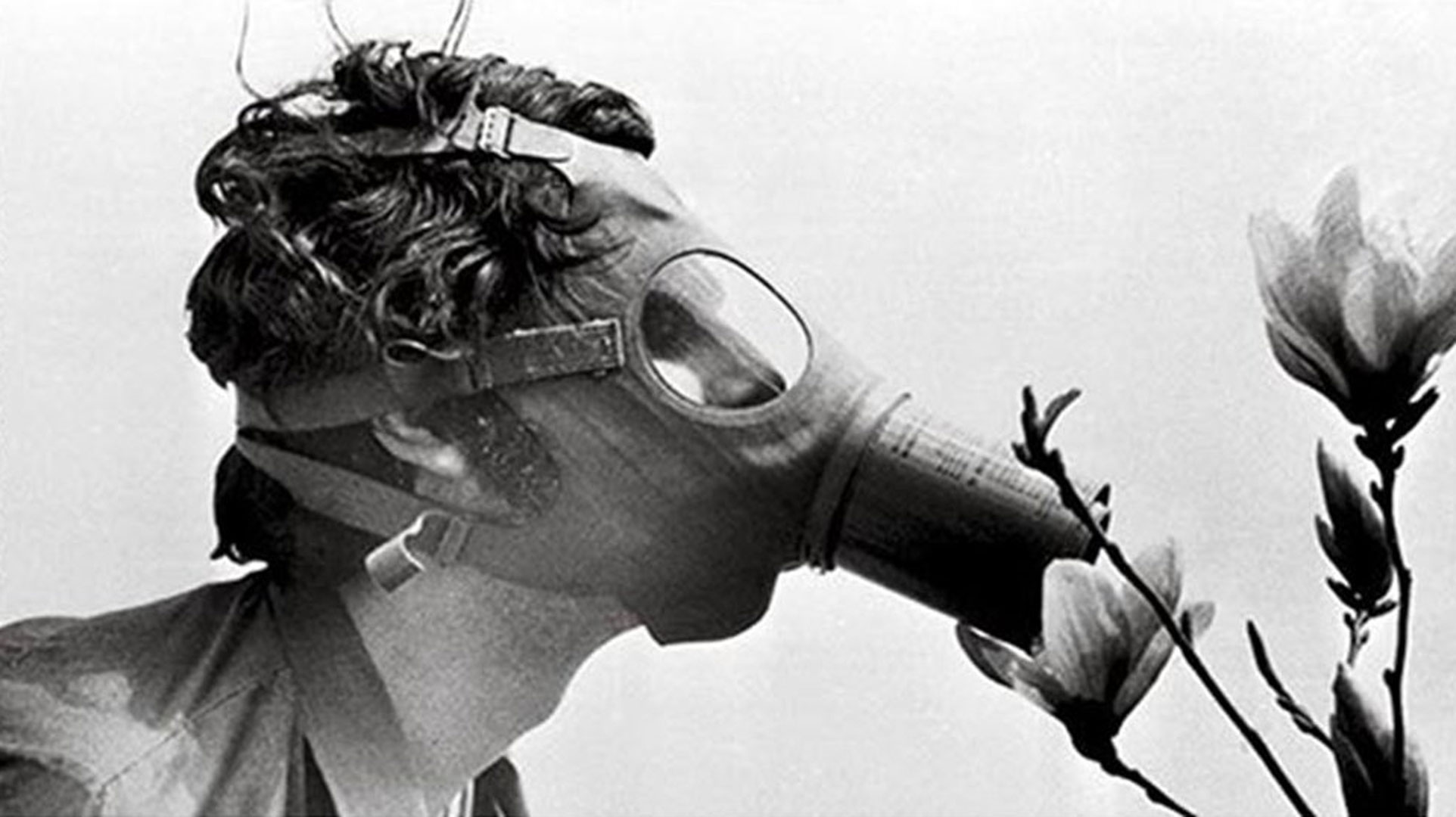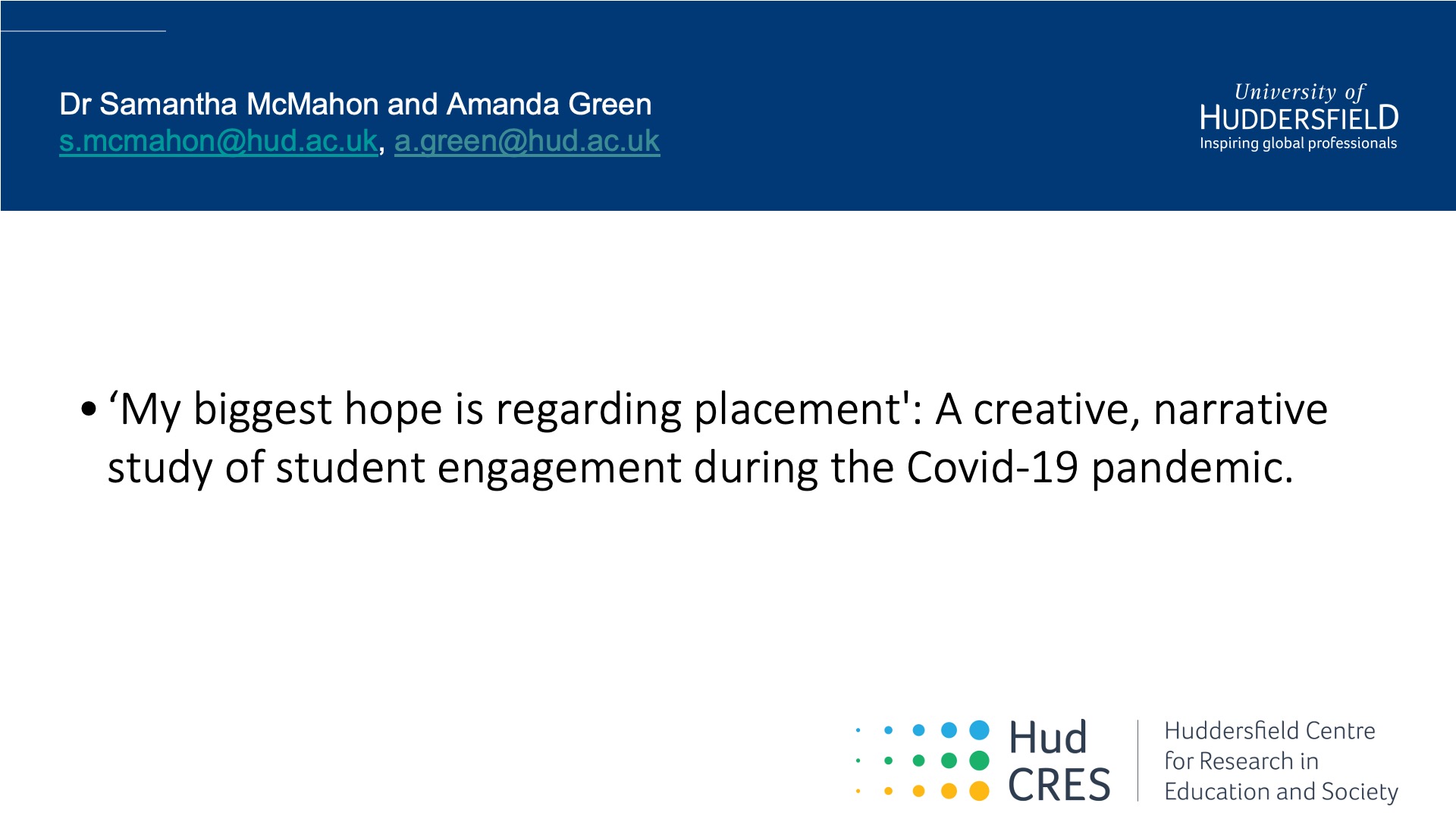Students' pandemic reflections - my biggest hope is for placement

Amanda Green
Progress Tutor
School of Education and Professional Development

Sam McMahon
HudCRES
School of Education and Professional Development
The disruption to student life during the pandemic was well publicised, but less is known about how students coped during this time and how their engagement with university life was affected.
Our recent research focused on the experiences of new and returning undergraduate students who were studying on courses designed to support employment with children, young people and families, with some progressing into teaching.
We used creative outputs and narratives as a way of studying experience (Connelly and Clandinin, 2006) and of understanding how people make sense of the world (Bruner, 1991).
Ethical approval was granted by the institution and informed consent was obtained from all of the participants. We were concerned that taking part in the research may affect students emotionally, so we provided each participant with contact details for support services at the university. As the submissions were received, we had concerns about a particular student and felt it necessary to reach out to them to ensure their safety. Further contact satisfied us that they were accessing the support they needed.
Seventeen students submitted a wide variety of creative outputs and narratives, between September 2020 and April 2021, including: photo journals, poems and digital art.
Coexisting with Covid
You once so firmly gripped me,
my mouth, my nose, my face.
I struggled to breathe beneath you.
I objected and protested against the imprisonment of my face.
Yet time went past and soon I found you; you were a virtuous keeper,
Hugging my face you kept me safe, now despite the restrictions you seem much easier.
As I try to navigate around this concrete maze
Bright signs assault my senses
Beware! Be safe!
Wash your hands!
Don't touch your face!
I am somewhat bombarded by these messages.
While some think it's just a hoax,
propaganda; a government scheme
I know of those who have suffered.
I know those who are suffering unseen.
So I wash my hands, I keep my distance; to keep the figures low
This simple task unites us and I find camaraderie with people unknown.
Newly made friends; none of us are alone.

A thematic analysis of the data was undertaken, viewed through Kahu’s (2013) four mechanisms of student engagement:
- belonging
- emotions
- wellbeing
- self-efficacy
This model recognises that student engagement is not static, but a process, supported by Kahu’s four mechanisms in the educational setting (Kahu and Nelson, 2018).
Notably, placement emerged across each mechanism as central to students' engagement. This was unanticipated. There is little research on placement in the existing literature on student engagement.
Findings: emotions
"I also feel excited to see my colleagues and get back into schools on placement to meet new children and work in new settings; doing what I love."
"I hope that this year I will be able to complete my full 8 weeks block placement as I fear that if I don't I will have missed out on valuable teaching practice."
"After missing all the time on placement ... at the end of the year I was left feeling like I don't know enough to go on to second year."

These hopes and experiences, focusing on placement, were replicated by many students within their creative work and narratives and wonderfully demonstrated, across each mechanism, by this quote from one participant’s narrative:
My biggest hope for the academic year is regarding placement. Unfortunately, due to the pandemic earlier in the academic year our block placement was cut short. I am hoping that when it is time for our next block placement that the situation will be less severe: allowing for the full placement to be completed. Placement is my favourite part of my university experience, and I was sad when the duration was cut short. I am also hoping for another placement which continues to push me as a professional and a person."
Findings: student wellbeing
A less surprising, but no less important aspect of the research findings, was rich data around student wellbeing. Student wellbeing was a well-known concern prior to the pandemic (Neves and Hewitt, 2020). By far the biggest emotion expressed by the students was anxiety and how this affected their wellbeing.
However, the students also presented their coping mechanisms for engaging with their studies. This included time spent with their families generating feelings of belonging, which then supported their wellbeing and their engagement with the university. Students spoke about the health and safety guidance at the university and nationally, making them feel like they were, as one participant shared, ‘in it together’.
Future research
As a small-scale study, we acknowledge that this research has its limitations, but it has certainly highlighted the value that the students put on placement and that more research is needed to investigate further the relationship between placement and student engagement.
We presented this initial research at the British Educational Research Association (BERA) annual conference, 2021.
There is little written in existing literature about student engagement and the importance of placement, and we recognise that there is space for more work to be done in this area. If anyone is interested in collaborating in further research, please contact us:
